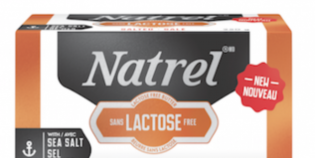Concern about data privacy and security is down among consumers across the globe, but companies still have a long way to go to earn their trust, according to a new study from SAS.
The analytics company conducted an online survey of more than 4,300 adults in 15 countries, including Canada. Globally, 63% of respondents said recent events like hacks and data breaches of government agencies and financial websites have heightened their concerns around sharing personal information, down from 69% in SAS’s 2014 survey.
In Canada, 64% of consumers report concern about what businesses do with their personal data; 24% of respondents feel they have no control at all over what businesses do with their information, and only 13% believe they have total control.
Wilson Raj, global customer intelligence director at SAS, said data privacy presents a dichotomy for businesses. “Customers still want, or even demand, a more personalized, more individualized way of communications from the brands,” he said.
“One of the things we’re seeing globally is that the notion of data privacy is no longer a regulatory or a governance business issue. It is fast becoming a customer experience issue.”
In the past, privacy was something for the lawyers to deal with, he added. “But today, privacy and personalization is for marketers… so the executive teams and boards are talking about how data privacy is going to affect their brand and how it’s going to affect customer experience. And so it’s taken on a different vein.”
According to the study, Canadians who are more affluent, female or over 40 are more likely to take issue with how their information is used. Six in 10 consumers expressed qualms about data being collected via their smartphones or PCs. They worry less about in-store technology and wearables, with less than half expressing concern about how personal information is recorded with these technologies.
Privacy concerns are also affecting mobile payment adoption. Only 28% of Canadians report using mobile payments, and a primary reason among non-users is unease about security.
The study notes consumers place responsibility for their personal information squarely with the businesses collecting it. But, consumers don’t feel businesses are keeping up their end of the agreement. Thirty-eight percent of Canadians do not feel their data is secure; 26% do not feel that companies are good about informing customers of changes in policies; and 36% do not feel that businesses are open about their policies in general.
But it’s not all bad news for marketers: the majority of consumers are willing to provide personal data if it means they will get something tangible in return. For instance, globally, 72% of consumers would provide their email address and 60% would provide their name in order to receive personalized discounts and coupons. In addition, 42% would share their birthday month and 34% would share their birthday year to receive special offers at certain times of the year.
When it comes to digital marketing messages, loyalty programs hold the most appeal. In Canada, 67% of consumers said loyalty program updates and offers from companies they do business with are appealing. This is followed by: personalized emails from companies I do business with (55%); promotional emails from companies related to my lifestyle and/or interests (47%); direct mail/catalogs from companies related to my lifestyle and/or interests (44%) and ads relevant to my lifestyle and/or interests on webpages I visit (38%).
“Consumers are willing to give up certain levels of data if they believe that the value exchange is beneficial, is enjoyable, has got utility and it really matters to them in terms of the brand experience,” said Raj. “Now, in order to build trust, it’s not just the value that’s being exchanged or the benefit from the brand, but how is that data is being stewarded and how are you taking care of my data. I think this is where brands actually can really do a lot more.”
To download the full study, click here: Mobility, Vulnerability and the State of Data Privacy.










